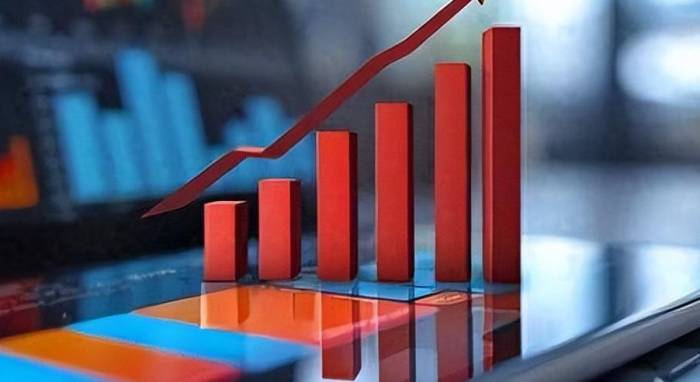French Government Crisis Threatens Deficits and Economic Stability
The political landscape in France has recently been rocked, reminiscent of the swift and unexpected changes observed in South Korea. In a dramatic turn of events, the French government has been forced to resign, following a no-confidence vote that has toppled Prime Minister Barnier after just 91 days in office. This upheaval comes at a time when France is grappling with stagnating economic growth, towering debt, and persistent deficits. The pressing question now is: can the French economy weather this political storm?
The no-confidence motion was passed by the National Assembly on December 4th, marking a historic occasion as it is the first time since 1962 that a French government has been ousted through such a vote. Barnier, who has only held office for a brief period, has become the Prime Minister with the shortest tenure since the establishment of the Fifth Republic in 1958. With the government in disarray and unable to formulate a budget for the upcoming year, there are growing concerns about the potential for a deepening economic crisis in France.
Advertisement
The current political turmoil originated from an internal "budget dispute," highlighting France's struggles with ballooning debt and deficits. The market's lack of confidence in France's economic stability has resulted in increased borrowing costs, surpassing levels seen during the Greek debt crisis. In a bid to manage the surging public deficit, Barnier's administration attempted to pass a budget bill that included tax increases and spending cuts amounting to €60 billion. However, the proposed budget for 2025 faced staunch opposition in Parliament, while Barnier refused to amend the proposal, leading to an impasse.
During Emmanuel Macron's first term, which commenced in 2017, France's deficit was already on an upward trajectory. In 2018, to quell protests against rising fuel taxes, Macron introduced billions of euros in subsidies and stimulus measures. This intervention was further compounded by the COVID-19 pandemic, where the government pledged to do "everything possible" to support the economy, ultimately injecting hundreds of billions of euros into businesses. Just when it appeared that the economy was on the mend, the outbreak of global conflicts in 2022 led to soaring energy prices, prompting Macron to authorize yet another substantial round of government expenditure.
Despite these government interventions, the French economy has languished, with a notable increase in business bankruptcies. Remarkably, some economic indicators appear stable; the forecast for GDP growth in France for this year is estimated at 1.1%. However, this figure does little to mask the reality of an economy that has weakened considerably over the past few years. According to Denis Ferrand of the Paris economic research firm Rexecode, France has seen a decline in the competitiveness of its enterprises, with production costs rising by 25% since 2019. A quarterly survey conducted with 1,000 small and medium-sized enterprises (SMEs) in France revealed that only 36% planned to maintain investment levels, while 45% intended to defer investments, and 18% considered outright cancellation of planned expenditures.
The rising number of bankruptcies has compounded the economic woes, with layoffs sweeping through various sectors. Philippe Druon, a bankruptcy and restructuring lawyer at Hogan Lovells in Paris, indicated that the current rate of corporate bankruptcies is comparable to the levels seen during the 2008 financial crisis. This year, approximately 65,000 companies are expected to file for bankruptcy, a sharp increase from the 56,000 filings in the previous year. High-energy dependence has forced many firms, including global tire manufacturer Michelin and leading chemical producer Vencorex, to announce significant cuts in production along with thousands of layoffs. Additionally, one of France's largest construction companies, Nexity, announced nearly 1,000 job cuts this spring due to high-interest rates affecting the real estate market. Auchan, a major grocery retailer, also disclosed one of the largest layoff plans in its history just last month.

The uncertainty surrounding the job market, combined with a burgeoning cost-of-living crisis, has seen French citizens prioritize savings over consumption, further eroding economic activity. In this context, the stability of the government and its economic policies becomes increasingly critical.
As political unrest unfolds, the likelihood of an economic crisis in France looms large. Charlotte de Montpellier, Chief Economist at Dutch Bank in France, articulated the adverse implications of political instability during a time of economic stagnation. With energy prices and interest rates remaining high, alongside a sluggish industrial sector and declining consumer confidence, France's economic growth has essentially plateaued in the past two years.
The federation representing the backbone of French economic activity, predominantly composed of SMEs, warned that the current division in Parliament could usher in a "new period of instability." A France lacking a coherent budget strategy runs the risk of triggering a debt crisis, the repercussions of which would be devastating for economic stakeholders.
Despite the weight of these concerns, Anne-Sophie Alsif, Chief Economist at the consulting firm BDO Paris, emphasized that while the underlying economic factors alone may not lead to a significant crisis, the political dynamics could prove to be disastrous. She suggested that macroeconomic data was on the verge of improvement; however, should the government collapse now, leaving Parliament unable to pass a tailored budget for 2025, it could plunge France into an economic crisis that would be catastrophic. The implications of such a failure would not only reflect a lack of capacity to implement deficit-reduction plans but could also see the national deficit soar to over 6% by 2024, effectively repeating the budgetary challenges of the past. The survival of the French economy hangs in a precarious balance as the nation faces uncertainties on multiple fronts.